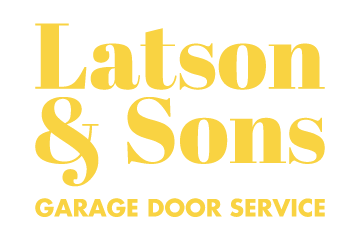Frequently Asked Questions
Our experts answer the most common questions about garage door services, repairs, and installations
-
"My garage door is making terrible grinding and scraping noises when it moves. What could be causing this, and how would your repair service fix it?" Repair"Grinding or scraping noises typically indicate severely worn rollers, lack of lubrication on hinges/springs, or damaged/misaligned tracks. We'll inspect the system, replace worn rollers, realign or replace damaged track sections, and lubricate all moving parts to restore quiet operation."
-
"My garage door seems crooked and sticks when opening or closing. Does this mean the tracks are damaged, and how do you repair them?" Repair"Yes, this often signals bent or misaligned tracks. We use specialized tools to precisely realign, level, and reinforce tracks. If sections are irreparable, we'll replace them to ensure smooth, safe door movement."
-
"We're replacing our old garage door. What factors do you consider when helping us choose and install a new one?" Installation"We evaluate the material, insulation, safety features, and design compatibility with your home. Our installation includes the complete removal of the old system, precise mounting of new tracks, springs, and hardware, as well as balancing for optimal performance."
-
"I heard a loud bang, and now my garage door won't open. Is it a broken spring, and why do I need a pro to replace it?" Spring Replacement"A loud bang and inoperable door almost always mean a broken torsion spring. These springs hold extreme tension (400+ lbs)—DIY attempts risk severe injury or death. We safely unload the damaged spring using specialized tools, install an exact-match replacement, and calibrate tension for perfect balance."
-
"My garage door is very heavy to lift manually and slams shut. Does this mean the springs are wearing out?" Spring Replacement"Yes—these are classic signs of weakened springs. We test spring lift capacity and door balance. If springs are failing, we replace them with precision-rated new springs to prevent opener strain, door damage, and safety hazards."
-
"My garage door opener motor runs, but the door doesn't move. What's likely wrong, and how do you fix it?" Opener Repair"This usually indicates stripped drive gears, a disengaged clutch, or a faulty carriage assembly. We disassemble the opener, replace worn gears/sprockets, repair clutch mechanisms, and test all safety features (sensors, auto-reverse) post-repair."
-
"I want a new garage door opener installed. How do you ensure it's compatible with my door type and weight?" Opener Installation"We measure door weight, verify spring type (torsion/extension), and assess balance. Based on this, we recommend horsepower (e.g., ¾ HP for heavy doors) and drive type (belt/chain/screw). Installation includes motor mounting, sensor alignment, and programming remotes/keypads."
-
"Can you install a keypad outside my garage and pair new remotes?" Opener Accessories"Absolutely. We mount weatherproof keypads, program all remotes/wall controls, and (imyQ set up assistance for new openers)."
-
"My wireless keypad sometimes doesn't work. What could cause this, and how would your service fix it?" Opener Accessories"Intermittent failure often stems from dead batteries, signal interference, or programming glitches. We replace batteries, relocate the keypad if needed, reprogram it, and test signal strength. If faulty, we replace the unit."
-
"What does your preventive maintenance service include to avoid unexpected problems?" Preventive Maintenance"Our preventive maintenance services includes: tightening all hardware, lubricating springs/rollers/hinges, testing door balance, inspecting cables for fraying, aligning tracks, cleaning safety sensors, verifying auto-reverse function, and calibrating opener force settings. We will point out any emerging issues."
